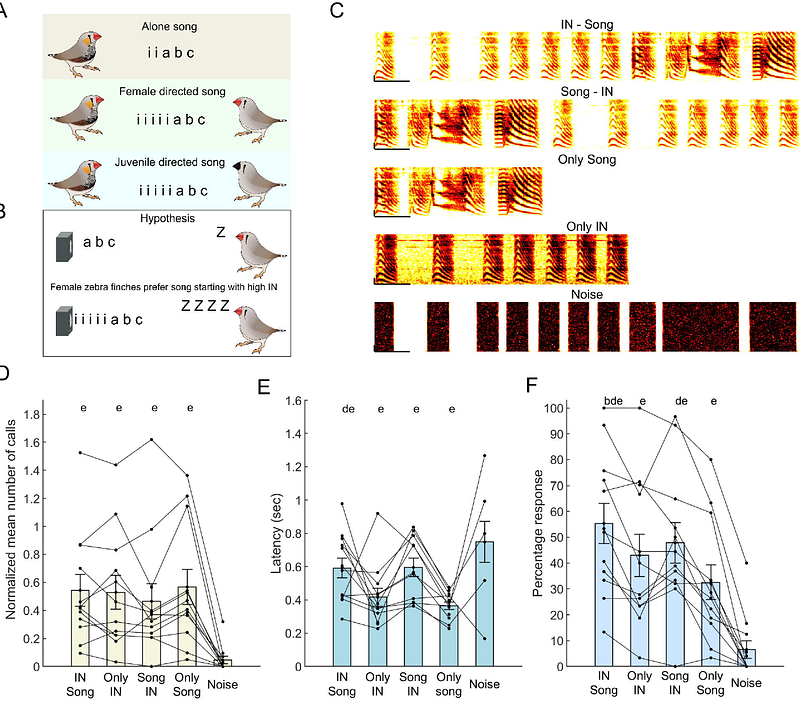Zebra finch introductory notes do not influence female response to song and juvenile song learning accuracy

Zebra finch introductory notes do not influence female response to song and juvenile song learning accuracy
Kalra, S.; Chandolia, C.; Gautam, M.; Rajan, R.
AbstractMany songbirds begin their song bouts with introductory notes (INs). In some songbird species like rufous-sided towhees and white-crowned sparrows, INs are believed to function in communication, to alert conspecifics about song onset or as a signal for species identification, but it is unclear whether this function is conserved in other species. Here, we addressed this question using the zebra finch, a well-studied songbird. Male zebra finches begin their song bouts with several INs and the number of INs increases when males sing to females or juveniles, suggesting a possible role of INs in female song preference and/or juvenile song learning. To test these hypotheses, we first recorded and analyzed call responses of female zebra finches to playbacks of different song stimuli. Female zebra finches responded equally to songs with and without INs, even when songs were degraded or when background noise was present. Second, we examined song learning accuracy of juveniles and found that juveniles copied songs accurately from their fathers independent of the fathers\' number of INs. Overall, these results show that zebra finch INs do not influence female response to song or juvenile song learning and suggest that INs might have different functions in different songbird species.